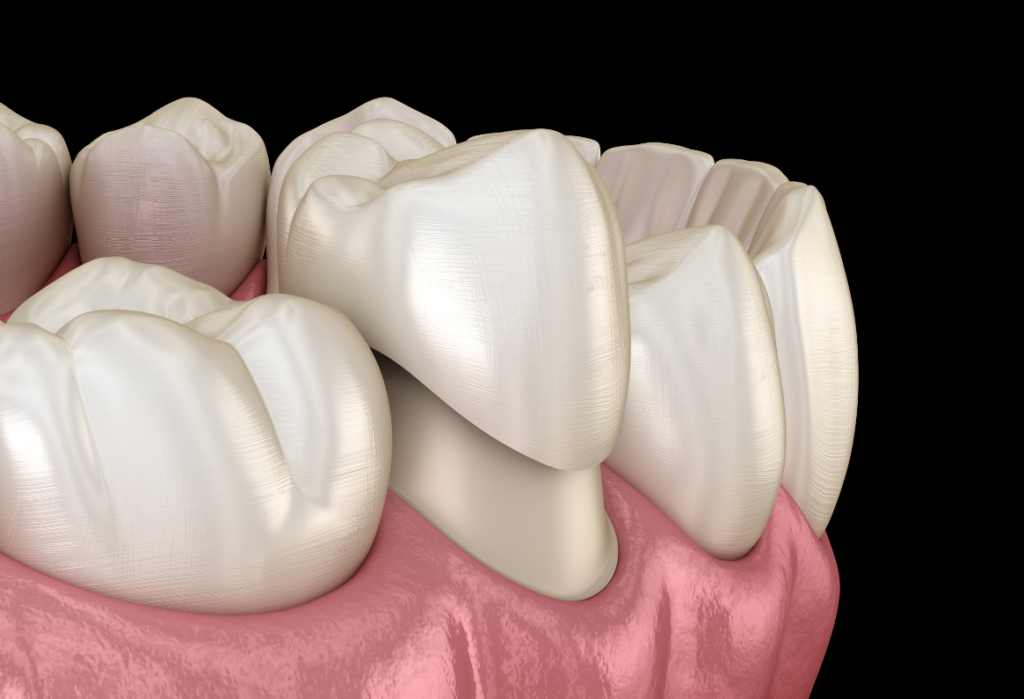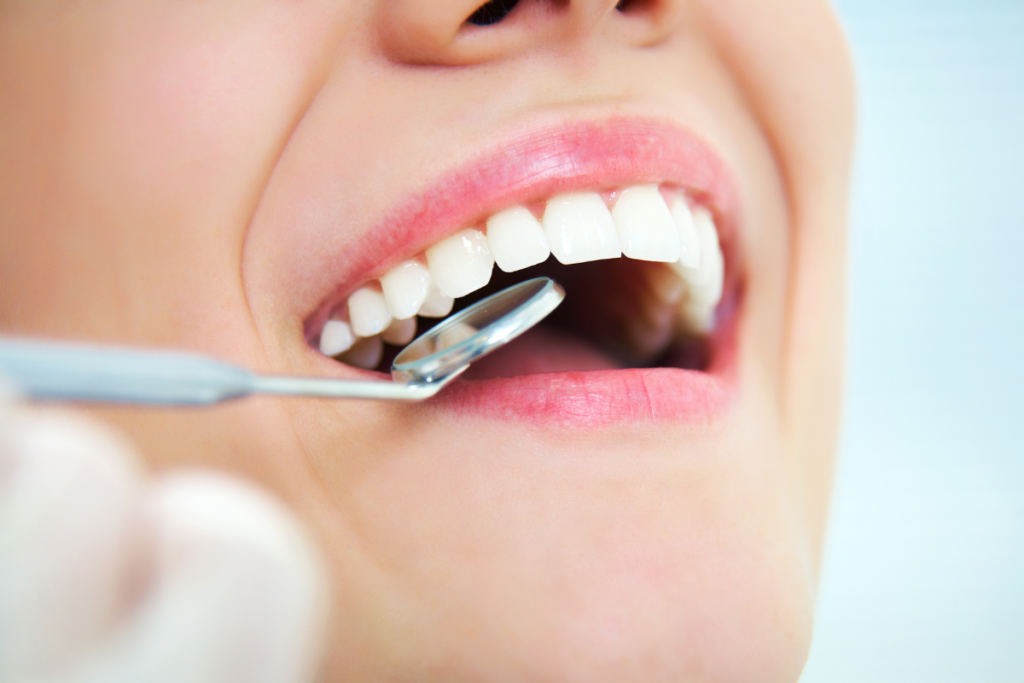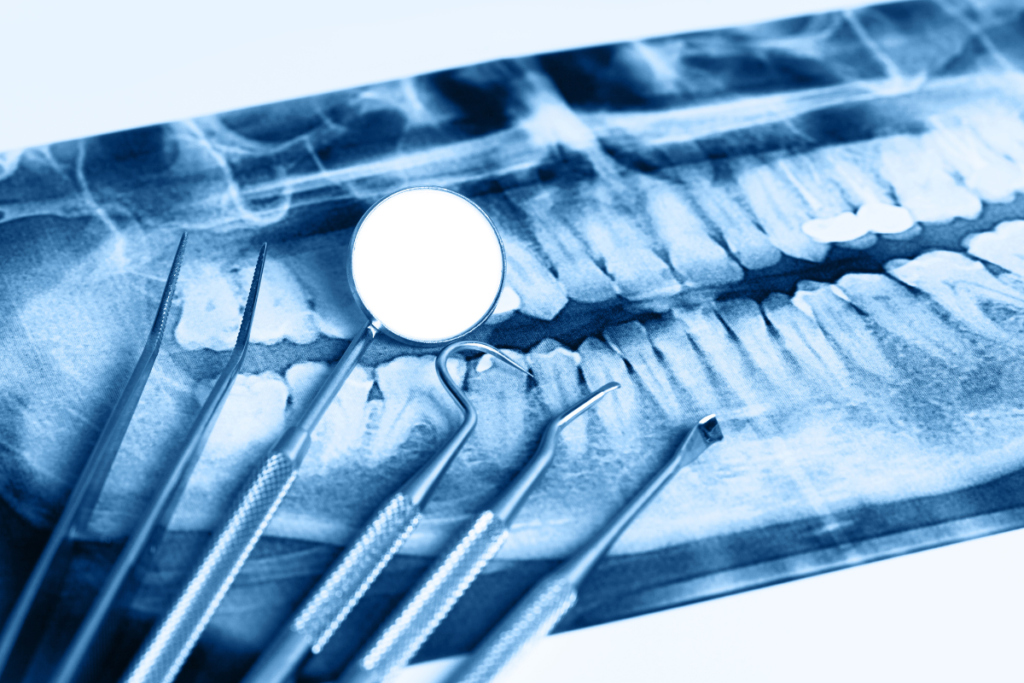Crowns are among the most common dental procedures. Besides improving one's smile, they're also used to enhance the function of an individual's teeth. This piece covers more information about dental crowns, including what they are, the various types of crowns, what one can expect during a dental crown appointment, and more.


A dental crown is a tooth-shaped cap placed over a tooth. One can use crowns if they have broken, decayed, or weak teeth.
Crowns are made from materials like ceramic, porcelain, and metal.
When selecting a suitable crown, one can consider things like:
Patients can have crowns installed on the same day (same day crowns) or over two appointments, depending on the material they choose.
Here are some of the materials used in crowns:
In some instances, the crown can contain a combination of materials; for instance, a ceramic crown fused to metal.
The dentist will consider these factors while deciding on the material for the crown:
Personal preference and the above factors will help determine the kind of crown one will pick.
With the help of technologies like computer-aided manufacturing and computer-aided design, a patient can get same day crowns, a procedure done in one appointment. The crown is designed and fixed at the dentist’s office.
As the name suggests, a temporary crown is meant for short-term use. Unlike a permanent crown, temporary crowns are attached to the tooth using an adhesive, making removing them easy.
Temporary crowns are usually needed when the permanent crowns are being made, usually on the first day of the appointment and partly on the second day when the permanent crowns are placed on the tooth.
Not all crowns cover the whole tooth. Onlay or ¾ crowns are suitable when not requiring a full crown.
One should take good care of crowns to ensure they last long. The following are tips to prolong the life of a dental crown:

The procedure varies depending on whether one gets same-day crowns or if it’s a multi-day process.
Same-day crowns procedure is less complicated as it doesn’t involve a temporary crown. Here are the steps:
Same-day crowns require advanced technology to fix, meaning some dentists may not offer the service.
For traditional crowns, one has to visit the dentist twice. The procedure is as follows:

Although dental crowns help fix various tooth problems, having them can come with complications such as:
Some people may develop allergies to the metal used in crowns.
Crowned teeth may experience heat or cold sensitivity, which can be considered normal. If the tooth is sensitive to pressure while biting, the problem could be the crown fitting. One must see a doctor to have this issue fixed.
Crowns sometimes get loose and may even fall out. Visiting the dentist if a crown starts to feel loose is advisable.
Crowns like the ones made from porcelain are prone to chipping. Small chips can be repaired, but a replacement could be the only option in case of excessive chipping.
The gum area around the crown could start feeling sore and irritated or even begin bleeding, leading to gum disease.
Crowns can be used for various purposes, including fixing worn, weakened, and cracked teeth. Anyone with a massive cavity can also consider getting crowns to fill it.
Crows can last between 5 to 15 years. Because some crowns are stronger, they have a longer lifespan.
While porcelain and ceramic crowns appear more natural, metal crowns are more sturdy.
Notwithstanding the kind of crowns, they can all last many years when treated with care.
Crowns may vary in price depending on the material used, but one can expect to pay between $800 and $1,500. Crowns like gold can be more expensive, costing up to $2,500.
Metal crowns are the most affordable, costing less than porcelain and gold crowns.
Other factors that can affect the cost of crowns include the work to be done before fitting them. If one needs a dental implant, this will require more prep work which means more price.
Sometimes dental insurance can cover the cost of crowns, but you must verify this in advance because some crowns may not be covered, or the insurance plan may only pay for some expenses.
People with crowns should visit a dentist regularly for check-ups. However, loose, damaged, or worn-down crowns shouldn’t wait. Instead, one must contact the dentist immediately. Swelling near the crown, excessive sensitivity, and tooth pain are other conditions that deserve quick dental attention.
Simply put, one should contact their dentist if they notice any unusual signs resulting from having dental crowns.
Dental crowns help fix tooth problems like decay and weak teeth. Dentists can make crowns from various materials, including metal, porcelain, and resin.
One should maintain proper dental hygiene to increase the lifespan of crowns, and any crown-related complications should be reported to the dentist.
If you need same day crowns or general information on dental crowns, contact Naples Dental Boutique in Naples, FL, today.